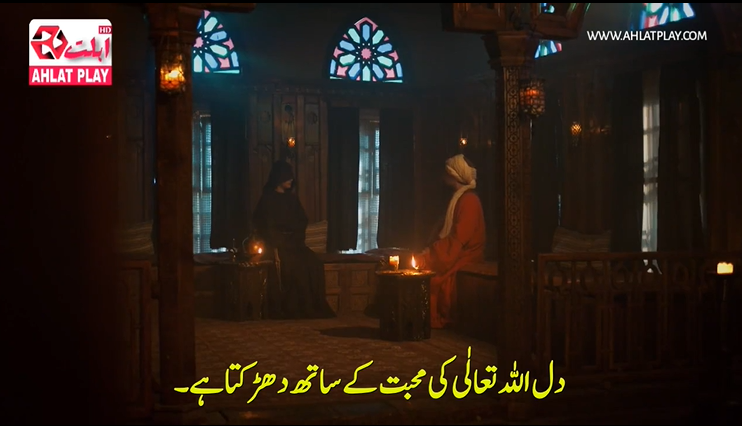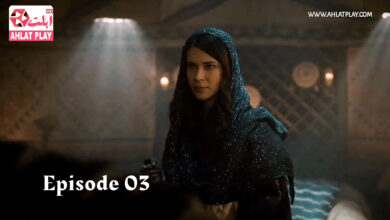Mevlana Celaladdin Rumi Season 3 Episode 6 With Urdu Subtitles

Episode 06:
The Turkish historical drama “Mevlana Celaleddin Rumi” has captured the hearts of audiences across the world with its deep spiritual themes, beautiful storytelling, and emotional intensity. Season 3, Episode 6 stands out as a particularly powerful chapter that delves into the complex lives of Rumi, his companions, and the people around him.
This episode focuses on major life-changing events: the union of Kimya and Shams Tabrizi, the rising political dominance of Gurju Sultan, Aladdin’s emotional downfall, and the blossoming romance between Bahauddin and Fatima. With Urdu subtitles, this moving episode becomes more accessible to South Asian audiences, allowing viewers to connect with the depth of Rumi’s message on love, loss, and divine wisdom.
Player 01
Player 02
1. The Marriage of Kimya and Shams Tabrizi
One of the most emotional and spiritual highlights of this episode is the controversial and mystical marriage between Kimya and Shams Tabrizi. Kimya, the adopted daughter of Rumi, is portrayed as a deeply spiritual and innocent soul. Shams Tabrizi, on the other hand, is a wandering dervish, whose meeting with Rumi changed the course of both their lives. Their connection is not just physical or romantic; it’s spiritual, profound, and full of philosophical symbolism.
The marriage, arranged with Rumi’s approval, sparks debates among followers and family. While some see it as a union of wisdom and purity, others—including Rumi’s son Aladdin—perceive it as unnatural and heartbreaking. The tension surrounding this marriage also reveals the societal limitations of the time and the sacrifices made in the name of spiritual devotion.
Kimya, though young, is shown as spiritually mature and willing to embrace the path laid out for her. Her silent strength adds emotional depth to the episode, and her interactions with Shams reflect a soulful understanding far beyond her years.

2. Gurju Sultan’s Supremacy and Political Maneuvering
As the spiritual drama unfolds, the episode doesn’t shy away from highlighting the political realities of the time. Gurju Sultan, a powerful figure in the Seljuk court, begins to assert his supremacy and control over Konya and its surroundings. His presence represents the tension between the spiritual world of the Sufis and the materialistic world of politics and power.
His policies and decisions put pressure on scholars, mystics, and even Rumi himself. In many ways, Gurju Sultan symbolizes the rigid authority that often clashes with the freedom of thought and soul represented by Rumi and Shams. While not necessarily evil, he is pragmatic and power-driven, creating a contrast to the purity of spiritual seekers.
This rising political backdrop adds a sense of urgency and conflict to the story, as the characters must navigate between inner truth and external expectations. The balance between worldly rule and divine love becomes one of the central questions raised in this episode.
3. Aladdin’s Heartbreak: A Son’s Silent Struggle
Arguably one of the most heart-wrenching subplots in Episode 6 is Aladdin’s emotional downfall. Rumi’s son, Aladdin, is shown struggling with jealousy, confusion, and grief over the growing closeness between his father and Shams. But what breaks him the most is Kimya’s marriage to Shams, a union he deeply resents.
It becomes evident that Aladdin harbored strong feelings for Kimya, perhaps even loved her in silence. Watching her unite with someone else, especially someone he resents, drives him into inner turmoil. This heartbreak is more than romantic—it symbolizes the emotional cost of spiritual greatness. Aladdin feels neglected, misunderstood, and unloved in the shadow of his father’s growing fame and spiritual connection with Shams.
His pain reflects the very human emotions often overlooked in grand spiritual narratives. His story gives voice to those left behind in the pursuit of higher truths, making the audience empathize with the emotional toll of divine obsession.
4. Bahauddin and Fatima’s Love: A Glimmer of Hope
Amidst all the tension, heartbreak, and spiritual conflict, the episode offers a refreshing and warm subplot—the budding romance between Bahauddin (a devoted follower of Rumi) and Fatima. Their love story is simple, pure, and heartfelt, providing a contrast to the intense philosophical struggles of other characters.
Their relationship develops slowly and respectfully, grounded in mutual admiration and spiritual harmony. Fatima is portrayed as a kind and strong woman, while Bahauddin is loyal, humble, and deeply in love. Their moments together bring peace and joy, showing how love—when based on understanding and respect—can flourish even in times of hardship.
This subplot also reflects the teachings of Rumi himself: that true love is not just passion, but compassion and companionship. Their connection is symbolic of a balanced, worldly love that still respects spiritual paths.
5. Importance of Urdu Subtitles for Global Audience
A noteworthy point for Urdu-speaking audiences is the availability of Urdu subtitles, which has played a major role in spreading the message of Rumi across Pakistan, India, and other South Asian regions. The translation not only allows non-Turkish speakers to enjoy the story but also preserves the poetic and philosophical essence of the dialogues.
Through Urdu subtitles, viewers can connect with Rumi’s message on a deeper level, as the language resonates culturally and emotionally with millions. It’s a bridge between Turkish Sufism and South Asian spirituality, making Rumi’s wisdom truly global.
Conclusion: A Deeply Moving Episode of Love, Loss, and Spiritual Awakening
Season 3, Episode 6 of Mevlana Celaleddin Rumi is more than just a television episode—it’s a soul-stirring experience. From Kimya’s sacrificial marriage to Shams, Aladdin’s heartbreak, Gurju Sultan’s political strategies, and the tender love between Bahauddin and Fatima, the episode captures the essence of human emotion and spiritual yearning.
With beautifully composed scenes, powerful acting, and deep philosophical dialogues—enhanced by Urdu subtitles—this episode becomes a gateway into Rumi’s world, where love and loss are both steps on the path toward divine truth.
For fans of historical drama, spiritual seekers, and lovers of Sufi wisdom, this episode is a must-watch. It reminds us that the journey to the divine is not always easy—but every heartbreak, every conflict, and every union has a purpose.



